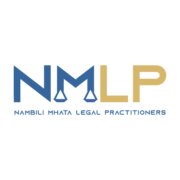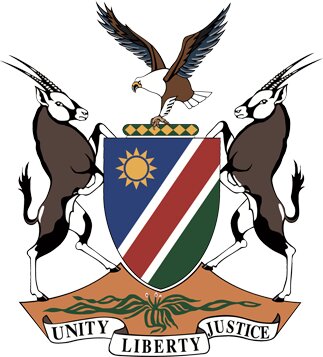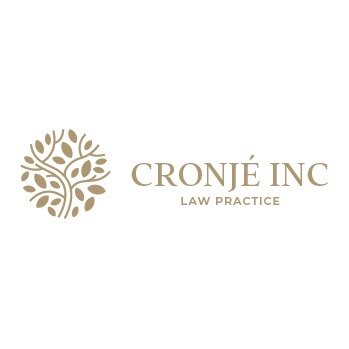Best Natural Resources Lawyers in Windhoek
Share your needs with us, get contacted by law firms.
Free. Takes 2 min.
List of the best lawyers in Windhoek, Namibia
About Natural Resources Law in Windhoek, Namibia
Natural Resources Law in Windhoek, Namibia, is concerned with the regulation and management of the country's natural resources, including minerals, water, land, and wildlife. Namibia is known for its rich mineral resources, vast landscapes, and diverse wildlife, making this sector highly significant for the country's economy and environmental conservation efforts. The laws focus on sustainable management, equitable use, and the protection of these resources to ensure they benefit all Namibians while preserving them for future generations.
Why You May Need a Lawyer
There are several situations in which you may need a lawyer specializing in Natural Resources in Windhoek:
- **Land and Resource Ownership Disputes:** Legal conflicts regarding the ownership and use of land or resources can require legal mediation or representation.
- **Obtaining Permits and Licenses:** Navigating the bureaucratic process of acquiring necessary permits and licenses for mining or other resource exploitation can benefit from expert legal advice.
- **Environmental Compliance:** Businesses or individuals involved in natural resource extraction or use must comply with environmental regulations, necessitating legal guidance to ensure adherence to laws and avoid penalties.
- **Indigenous Rights and Land Claims:** Lawyers can provide assistance in cases involving indigenous land claims or disputes over traditional resource rights.
- **Contractual Agreements:** Drafting and evaluating contracts related to the sale, lease, or use of natural resources often require legal expertise to protect your interests.
Local Laws Overview
In Windhoek, some of the key legislative frameworks governing natural resources include the Minerals (Prospecting and Mining) Act, the Water Resources Management Act, and various environmental protection guidelines. The Ministry of Environment, Forestry and Tourism, as well as the Ministry of Agriculture, Water and Land Reform, play significant roles in enforcing these laws.
- **Sustainability:** Laws emphasize sustainable practices in the extraction and use of natural resources to prevent depletion and ensure long-term availability.
- **Permitting and Licenses:** Specific licenses and permits are required for activities such as mining, water use, and wildlife utilization, each with separate compliance standards.
- **Community and Indigenous Rights:** Legislation acknowledges the importance of involving local and indigenous communities in decision-making processes affecting their lands and resources.
Frequently Asked Questions
What resources are considered under Natural Resources Law in Namibia?
Natural resources in Namibia include minerals, water, land, forests, and wildlife.
Who enforces Natural Resources Laws in Windhoek?
The primary bodies responsible for enforcement are the Ministry of Environment, Forestry and Tourism and the Ministry of Agriculture, Water and Land Reform.
What is the process for obtaining a mining license in Namibia?
The process involves submitting an application to the Ministry of Mines and Energy, including environmental impact assessments and proof of financial and technical capabilities.
Are there specific laws protecting Namibia's wildlife?
Yes, Namibia has strict conservation laws such as the Nature Conservation Ordinance to protect wildlife and their habitats.
How can I resolve a land ownership dispute?
Resolution can involve negotiation, mediation, or litigation, often requiring legal assistance to navigate the complex legal landscape.
What rights do indigenous communities have over natural resources?
Indigenous communities have recognized rights over their traditional lands and resources, with specific protections enshrined in national laws.
Is environmental compliance mandatory for all businesses?
Yes, all businesses must comply with environmental laws, which may require environmental impact assessments and adherence to regulations.
How can I ensure compliance with water usage regulations?
Compliance can be ensured by acquiring the necessary permits and following guidelines set by the Ministry of Agriculture, Water and Land Reform.
Can foreigners own mining rights in Namibia?
Foreigners can own mining rights in Namibia, subject to specific legal requirements and often requiring partnerships with local entities.
What steps should be taken if I suspect environmental law violations?
Report the suspicion to the appropriate authorities, such as the Ministry of Environment, Forestry and Tourism, and consider consulting a lawyer for further action.
Additional Resources
- **Ministry of Mines and Energy:** Responsible for the oversight and regulation of the mining sector.
- **Ministry of Environment, Forestry and Tourism:** Oversees conservation efforts and environmental protection regulations.
- **Legal Assistance Centre:** A public interest law firm that provides assistance on various legal issues, including land and environmental law.
- **Namibia Nature Foundation:** An organization focused on sustainable resource management and environmental education.
Next Steps
If you require legal assistance in the field of Natural Resources in Windhoek, the following steps can guide you:
- **Consult a Specialist Lawyer:** Seek a lawyer specialized in Natural Resources Law to get professional advice tailored to your specific needs.
- **Gather Necessary Documentation:** Collect all relevant documentation, such as contracts, permits, and previous communications, to provide your lawyer with complete information.
- **Understand Local Regulations:** Familiarize yourself with relevant local laws to have an informed discussion with your lawyer.
- **Contact Relevant Governmental Bodies:** If necessary, get in touch with the appropriate governmental authority for information relevant to your concern.
- **Consider Mediation or Arbitration:** Explore these avenues as potential alternatives to litigation for resolving disputes efficiently.
Lawzana helps you find the best lawyers and law firms in Windhoek through a curated and pre-screened list of qualified legal professionals. Our platform offers rankings and detailed profiles of attorneys and law firms, allowing you to compare based on practice areas, including Natural Resources, experience, and client feedback.
Each profile includes a description of the firm's areas of practice, client reviews, team members and partners, year of establishment, spoken languages, office locations, contact information, social media presence, and any published articles or resources. Most firms on our platform speak English and are experienced in both local and international legal matters.
Get a quote from top-rated law firms in Windhoek, Namibia — quickly, securely, and without unnecessary hassle.
Disclaimer:
The information provided on this page is for general informational purposes only and does not constitute legal advice. While we strive to ensure the accuracy and relevance of the content, legal information may change over time, and interpretations of the law can vary. You should always consult with a qualified legal professional for advice specific to your situation.
We disclaim all liability for actions taken or not taken based on the content of this page. If you believe any information is incorrect or outdated, please contact us, and we will review and update it where appropriate.
















